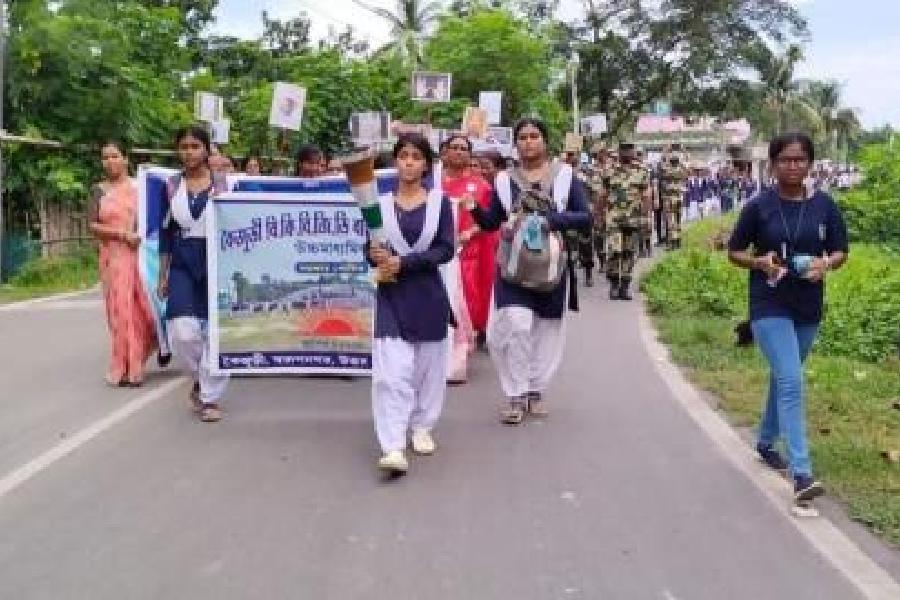Students of three schools in North 24-Parganas participated in a rally last Sunday against human trafficking.
The girls and boys walked more than a kilometre in Koijhuri village, about an hour from Basirhat town. The rally was inaugurated by lighting a torch — the fire representing the “strength to fight against trafficking”.
The idea was to spread awareness against human trafficking in the community where many children are first-generation learners and are vulnerable to trafficking.
The rally was organised by a Kolkata-based NGO, Kolkata Mary Ward Social Centre (KMWSC), in collaboration with Border Security Force’s anti-human trafficking unit 153.
“Now even in rural areas, students have access to smartphones and social media. They are on social media and they are using the phone, but they do not know the dangers of it. Nobody is telling them that (exposure to social media) is making them more vulnerable,” said Sister Monica Suchiang, director, Kolkata Mary Ward Social Centre.
KMWSC has been working in the area since 2020.
The rally, held on July 30, was themed on “Reach every victim of trafficking. Leave no one behind.”
Students of Koijhuri Girls School, Koijhuri Boys School and Gaborda High School, villagers, and representatives of police and administration took part in the rally.
Lack of awareness makes children more vulnerable to trafficking, said Nabanita Shome, programme manager at KMWSC.
Teachers who have been working in the area said poverty and lack of education land the children in danger.
“Parents, when they get a chance, marry off their daughters early thinking it is a better prospect. Girls at times run away in the hope of a better life,” said assistant teacher Srabani Das, Gaborda High School.
Some of them return and want to get back to school, said Das.
“Once aware of the dangers associated with elopement or being lured into it, they would be more cautious.... The lack of awareness stems from illiteracy or lack of education of the adults,” said Das.
While parents go out to work, children are left alone or with grandparents at home, sometimes with a device at their disposal. After the pandemic, the mobile phone has become more accessible to many than it was before.
Shome said KMWSC has created child-friendly groups that would send alerts to teachers or community workers.
“But any one stakeholder — be it NGO, school, local administration and parent — cannot work in isolation to curb trafficking. We have to create a circle of protection around the child. So we included all stakeholders in the rally,” said Shome.
